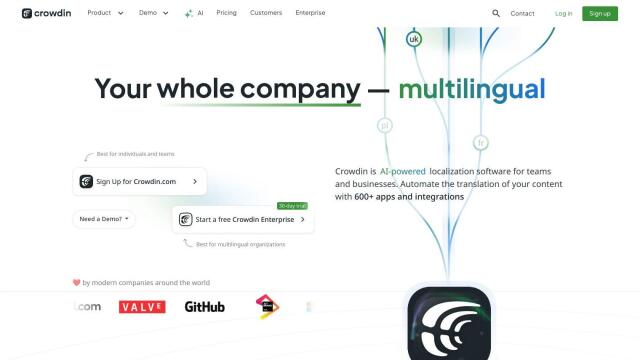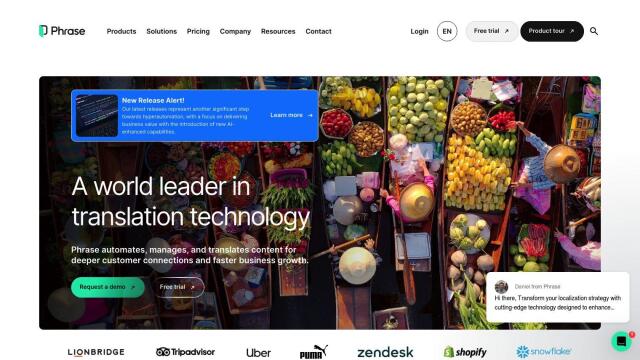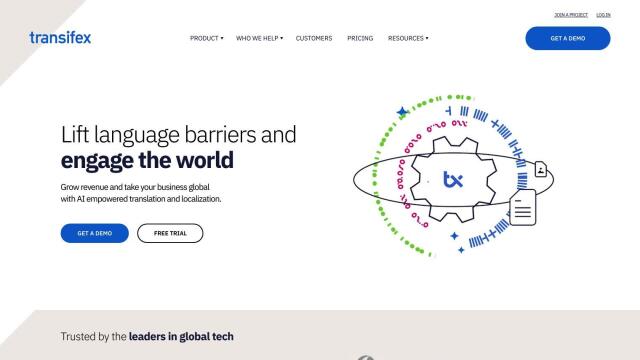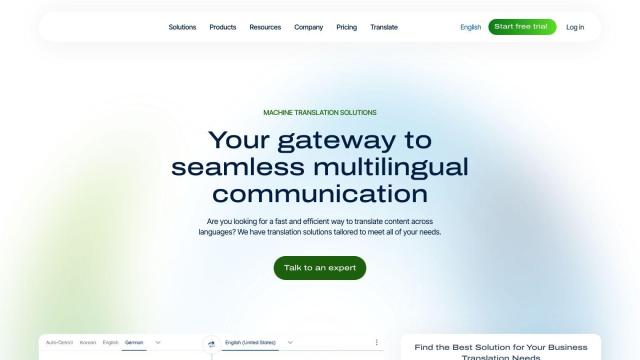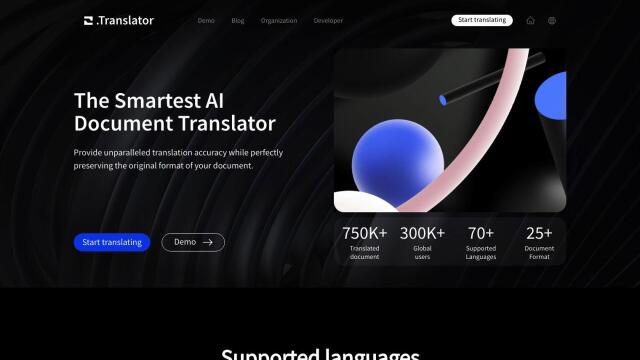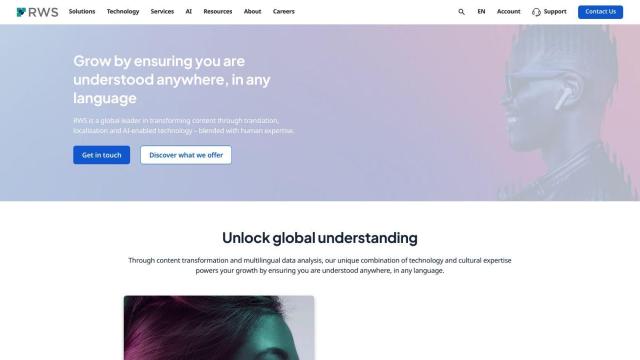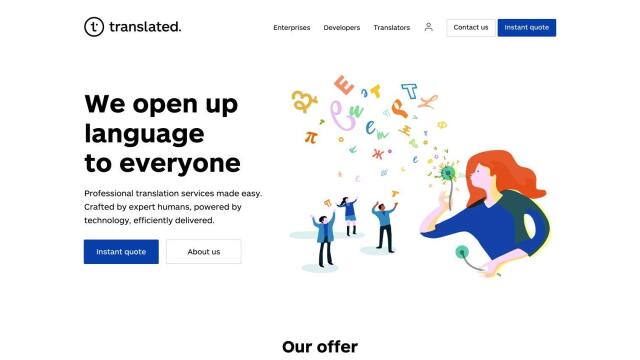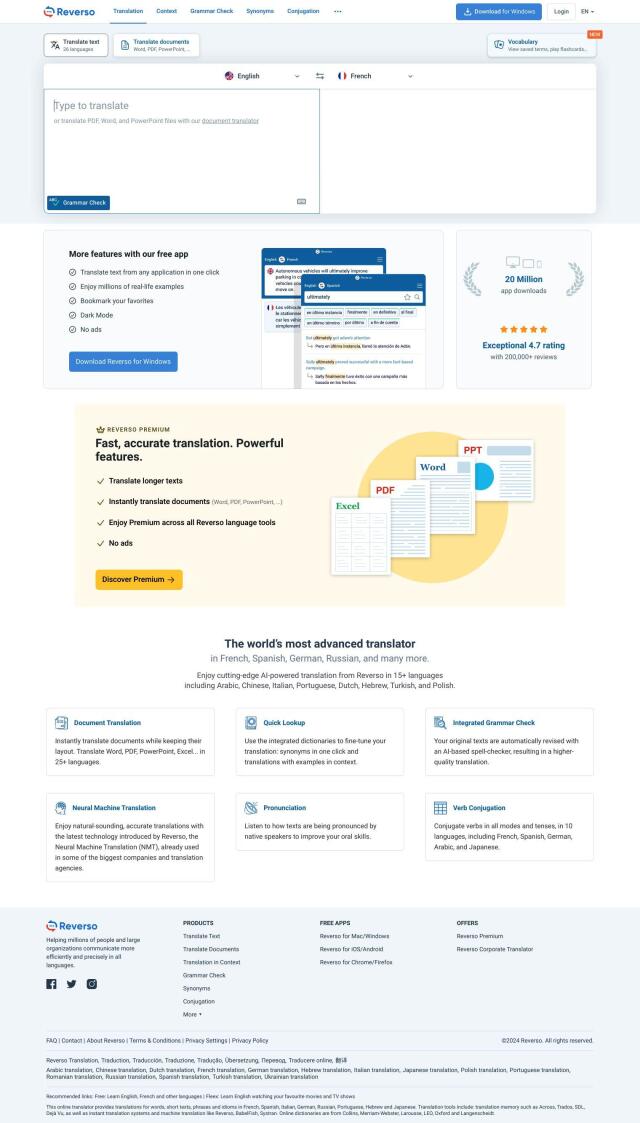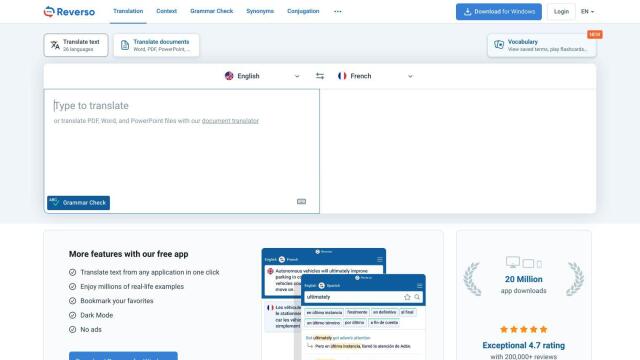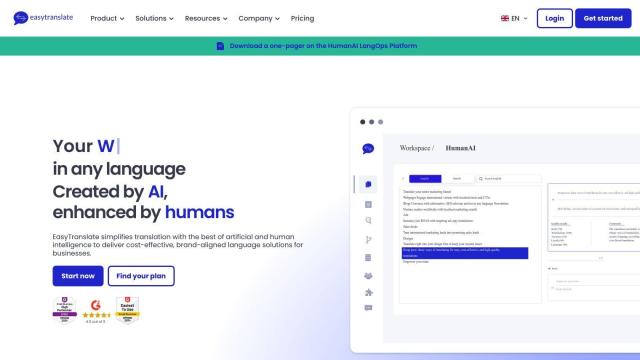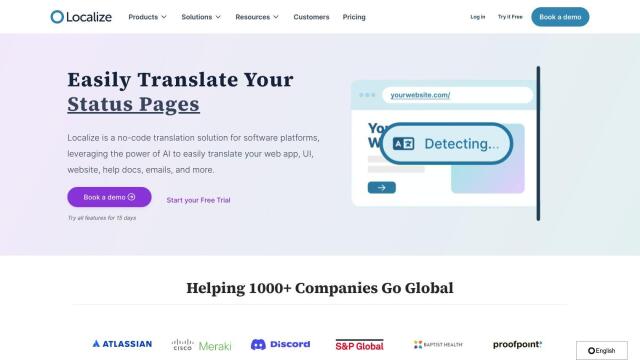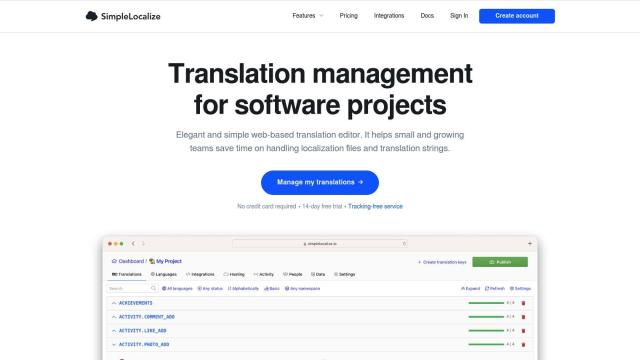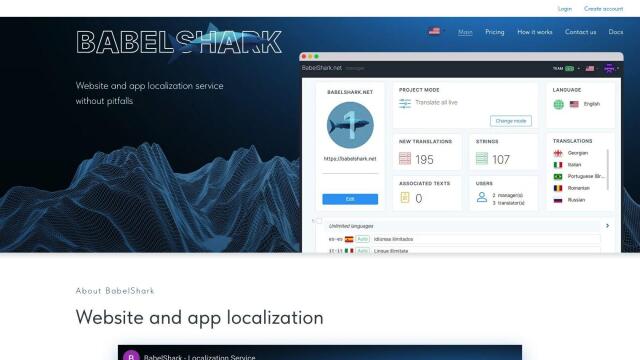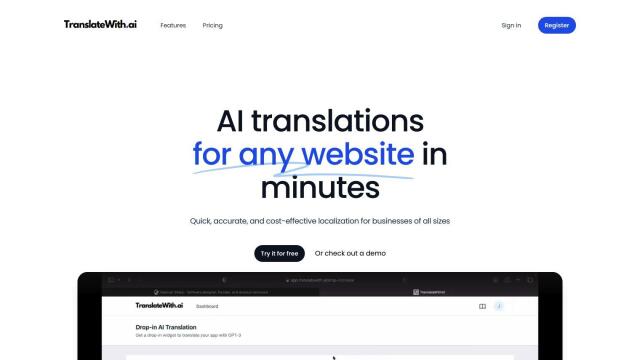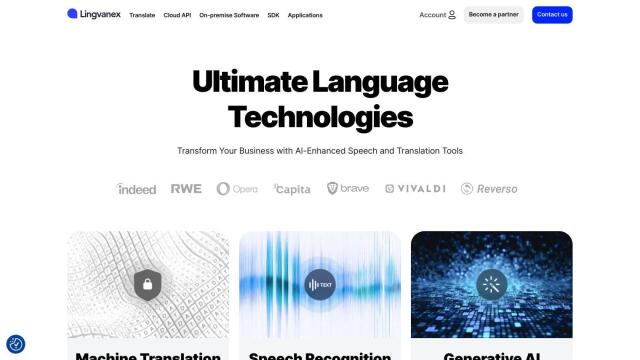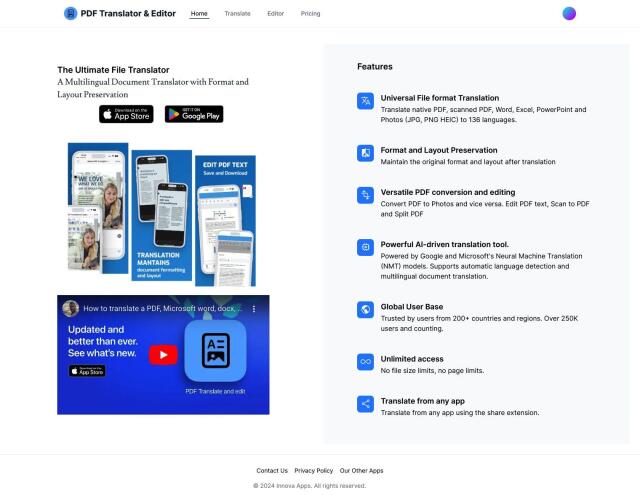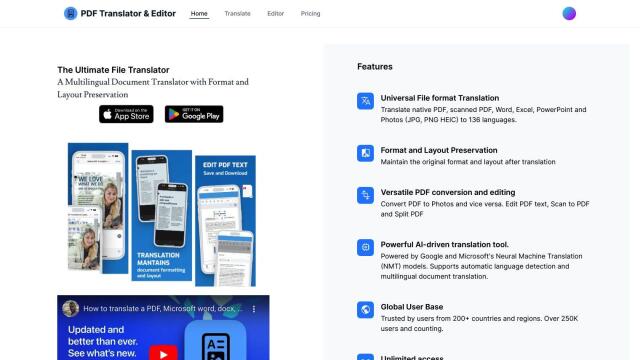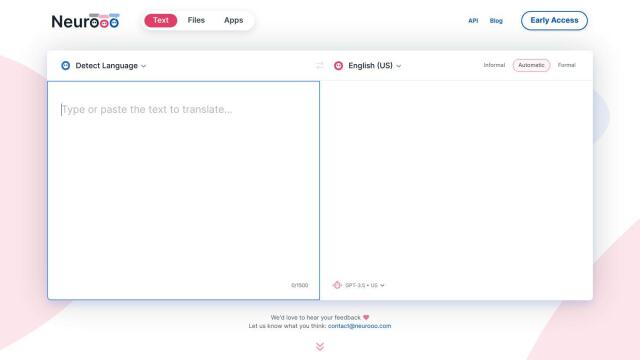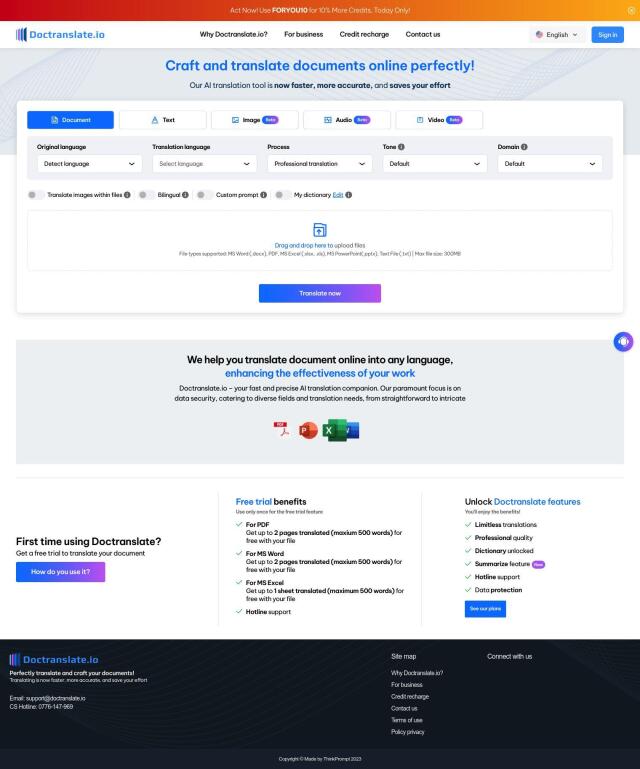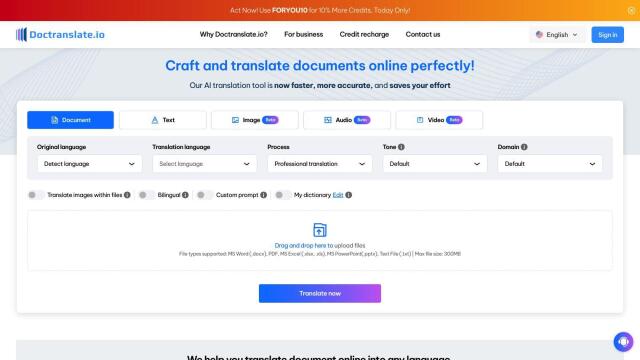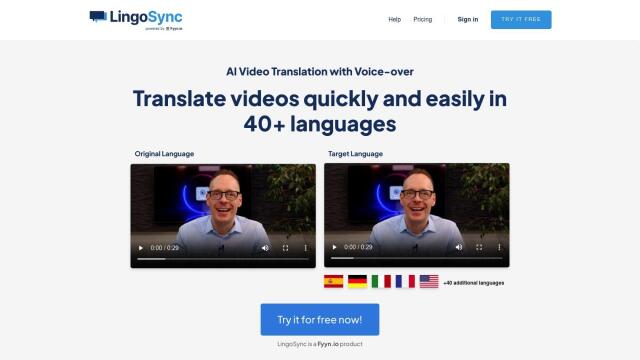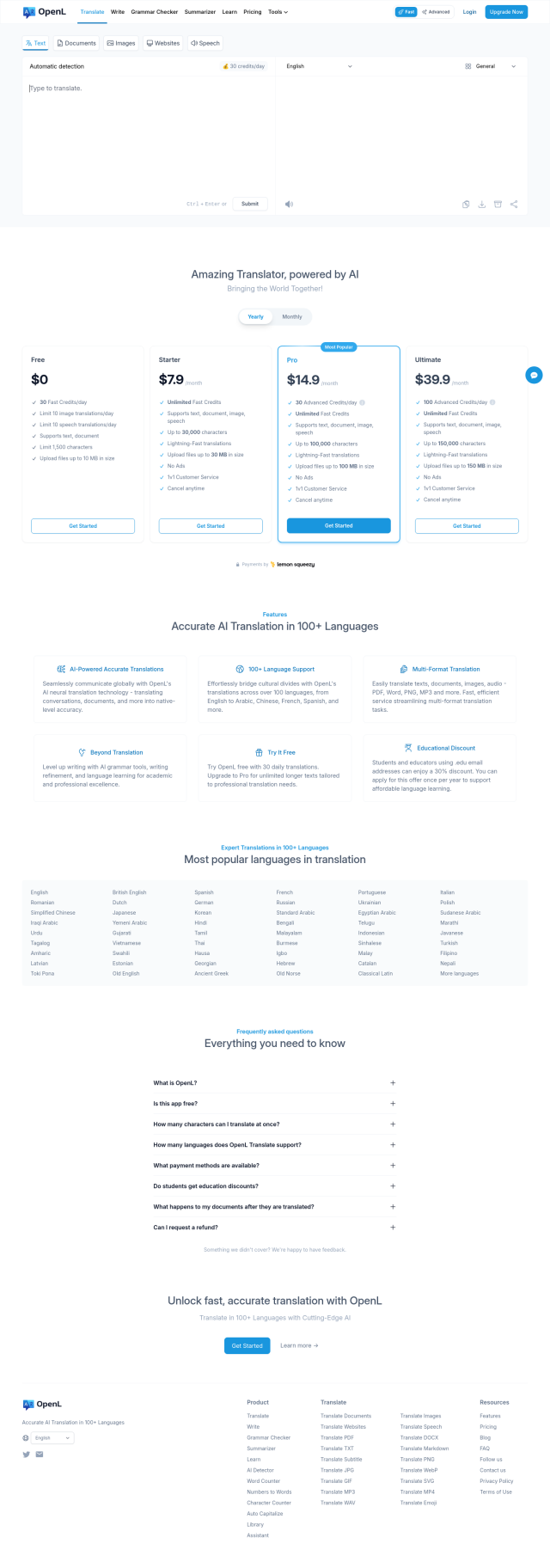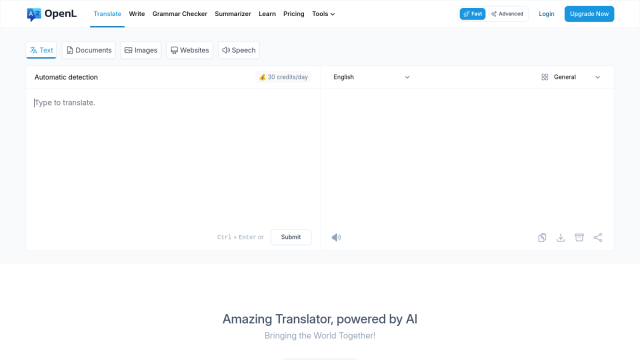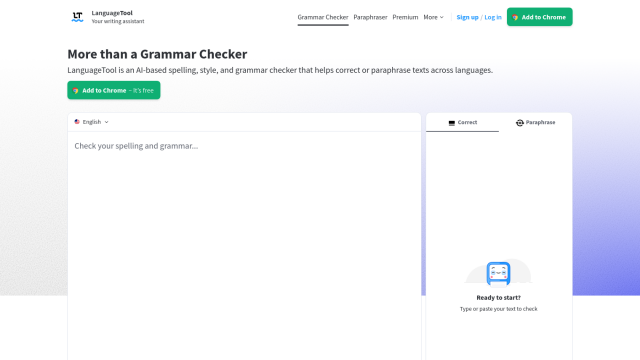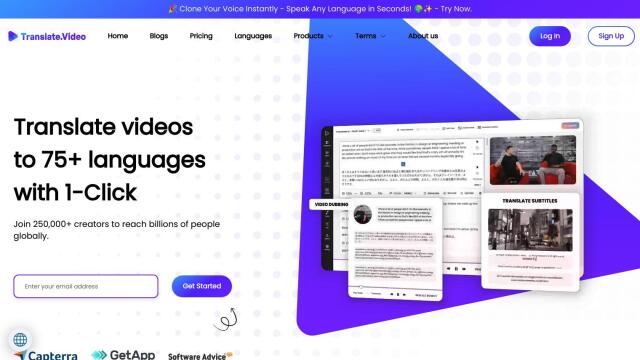Question: Looking for a collaborative translation tool that integrates with machine translation engines and offers quality control features.

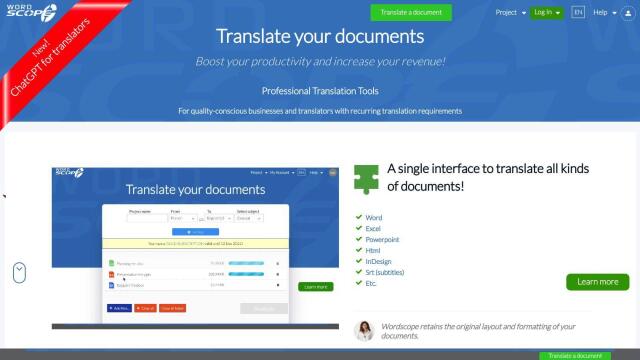
Wordscope
If you're looking for a collaborative translation tool that taps into machine translation engines and has quality control features, Wordscope could be a good choice. The platform, which uses artificial intelligence to accelerate translation, supports multiple languages and offers features like private translation memories, neural machine translation, terminology databases, quality control tools and comparative revision tools. Wordscope also emphasizes collaboration with project assignment, resource sharing, messaging and commenting so your translation projects get done on time.

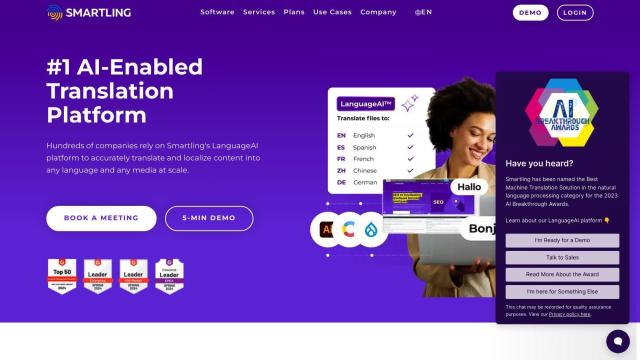
Smartling
Another strong contender is Smartling, a cloud-based AI-powered translation service geared for businesses trying to tap into customers around the world. It's got translation quality tools like Visual Context and Quality Checks, and it can handle a range of content, including websites, marketing materials and product documentation. Smartling can link to content management systems, marketing automation tools and cloud storage services, and it's a good choice for larger teams trying to streamline translation management and improve quality.

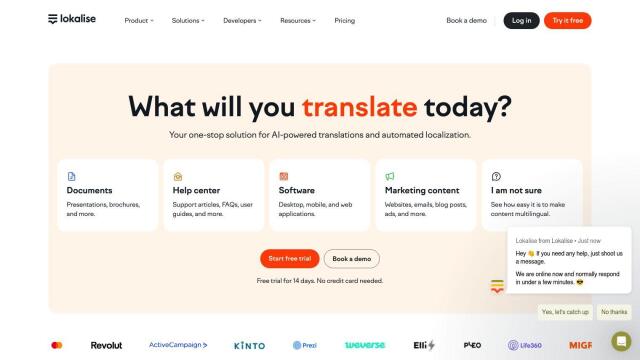
Lokalise
For developers and project managers, Lokalise offers a continuous localization and translation management service that can be built into development processes. It can handle a range of content and offers AI-powered translations, translation quality assurance tools and API integration with tools like GitHub, Bitbucket and Jira. Lokalise's collaborative workspace and customizable translation statuses let you oversee and track translation projects better, boosting productivity and translation quality.

